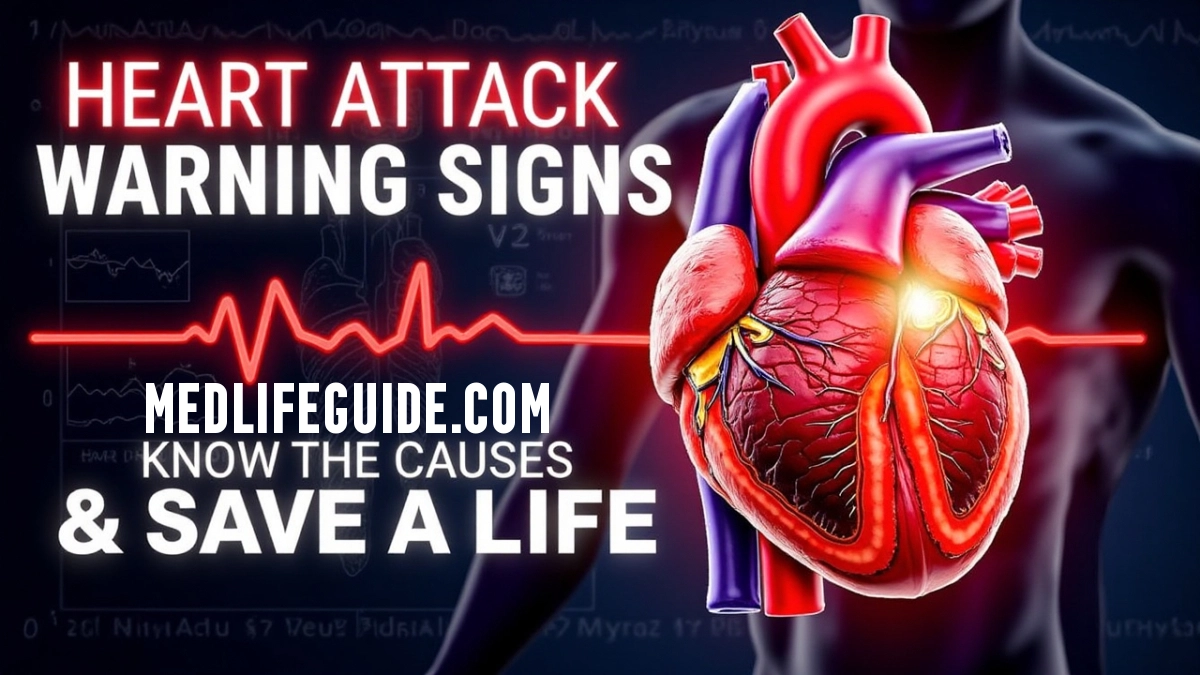A heart attack (myocardial infarction) is a life-threatening event where blood flow to the heart is blocked, often due to a clot or plaque buildup. While most people associate heart attacks with chest pain, the underlying causes are far more complex.
In this article, we’ll explore the primary and lesser-known causes of heart attacks, debunk common myths, and provide actionable steps to reduce your risk.
1. The Leading Causes of a Heart Attack
A. Coronary Artery Disease (CAD) – The #1 Culprit
Nearly 90% of heart attacks stem from coronary artery disease (CAD), where plaque (cholesterol, fat, and calcium) builds up in the arteries, narrowing them over time.
- Plaque Rupture: A sudden tear in the plaque can trigger a blood clot, blocking blood flow.
- Atherosclerosis: Chronic inflammation and artery hardening contribute to blockages.
B. Blood Clots & Blockages
Even without severe plaque buildup, a clot traveling to the heart can cause a sudden attack.
- Deep Vein Thrombosis (DVT): Clots from legs can reach the heart.
- Atrial Fibrillation (AFib): Irregular heartbeat increases clot risk.
C. Spasms in Coronary Arteries (Prinzmetal’s Angina)
Rare but dangerous, these spasms temporarily cut off blood flow, even in healthy arteries. Triggers include:
- Smoking
- Extreme stress
- Cocaine use
2. Hidden & Underestimated Risk Factors
A. Chronic Inflammation
Low-grade inflammation (from obesity, autoimmune diseases, or poor diet) damages arteries silently.
B. Insulin Resistance & Diabetes
High blood sugar accelerates plaque formation and artery damage.
C. Sleep Apnea & Poor Sleep
Repeated oxygen deprivation strains the heart, raising attack risk by 30%.
3. Lifestyle & Environmental Triggers
A. Sedentary Living
Sitting for long hours weakens the heart and worsens circulation.
B. Unhealthy Diet
- Trans fats (fried foods, margarine) increase LDL cholesterol.
- Excess salt raises blood pressure.
C. Chronic Stress & Mental Health
Stress hormones like cortisol inflame arteries. Depression is linked to a 40% higher heart attack risk.
4. Genetic & Uncontrollable Factors
- Family History: If a parent had early heart disease, your risk increases.
- Age & Gender: Men over 45 and women post-menopause face higher risks.
5. How to Reduce Your Risk (Actionable Steps)
- Quit Smoking – Even one cigarette a day raises risk.
- Exercise Regularly – 150 mins/week of moderate activity.
- Eat a Mediterranean Diet – Rich in omega-3s and antioxidants.
- Manage Stress – Yoga, meditation, or therapy can help.
Final Thoughts
Heart attacks don’t happen overnight—they result from years of silent damage. By understanding the root causes, you can take proactive steps to protect your heart.

